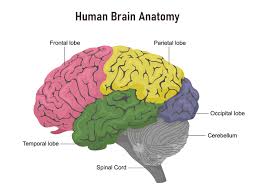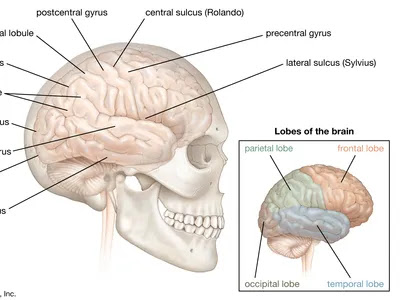Some examples of functions that the brain controls
**Sensory Processing**
The brain is a complex organ which oversees many functions that are necessary for daily living, survival and interaction. These functions are grouped into several categories, such as sensory processing, motor control and cognitive abilities. Here's some detailed information on the major brain functions:The brain interprets the information received from our five senses: sight, hearing, taste, touch and smell. Each sense modality is assigned a special area of the brain to process its information. **Vision** : The occipital is the primary brain area responsible for processing visual information. It interprets the signals coming from our eyes and helps us to perceive colors, shapes, and movements.Hearing: The auditory cortex is located in the temporal lobe. It processes sound and helps us to recognize different pitches, volume, and tones.**Touch** - The parietal cortex processes tactile information. It helps us to perceive pain, temperature and pressure.Taste and smell: These senses can be processed by the orbitofrontal and insula cortex. They help us to identify tastes and odors and contribute to our sensory experience.
**Motor control**
Cognition is a collection of mental processes including learning, problem solving, thinking and memory.
**Memory** : The hippocampus is important for learning and forming new memories. It is used to encode and retrieve data, which can be important for learning new skills or remembering names.
Attention and focus: The prefrontal cortex is responsible for attention control. It allows us to concentrate on a specific task while filtering distractions.**Decision-making** involves assessing alternatives and their consequences. This is a task that's primarily managed by the prefrontal cortex, where reasoning, judgment, and logic take place.
**Emotional regulation**
.jpg) **Emotion Recognition**: The Amygdala is a crucial part of the brain's processing of emotions, especially fear and happiness. It is essential for social interaction because it helps us to recognize the emotional cues of others.
**Emotion Recognition**: The Amygdala is a crucial part of the brain's processing of emotions, especially fear and happiness. It is essential for social interaction because it helps us to recognize the emotional cues of others.The autonomic nervous control involuntary body functions.
The medulla ovalata regulates the cardiovascular system, by adjusting blood vessel diameter and heart rate according to body needs.**Respiration** - The brain stem regulates breathing patterns to ensure that the levels of oxygen and carbon dioxide in the blood are balanced.**Digestive Processes**: The Hypothalamus controls appetite and energy expenditure and affects processes like hunger and thirst.
**Social interaction**
It is important to understand social cues, and how people communicate.
**Language** : Broca's Area and Wernicke’s Area are essential for the production of speech and understanding, which allows us to communicate effectively.
**Social cognition** : The brain is responsible for helping us to understand social interactions and perceive others' intentions, emotions and attitudes, such as the middle prefrontal cortex and the temporoparietal joint.
Sleep patterns and circadian rhythms are controlled by the brain, which is important for your overall health.



.jpg)


Comments
Post a Comment